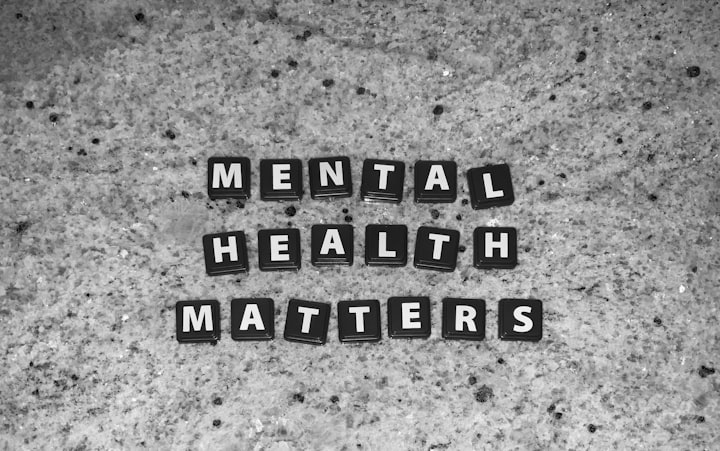Difference Between Psychiatrists and Therapists
What to Know Before Hiring One

The terms "psychiatrist" and "therapist" refer to different types of mental health professionals who provide support and treatment for individuals experiencing mental health issues. Here are the key differences between a psychiatrist and a therapist:
Education and Training
- Psychiatrists: Psychiatrists are medical doctors (MDs) or doctors of osteopathic medicine (DOs) who specialize in mental health. They undergo extensive medical training, including four years of medical school, followed by a residency in psychiatry. This medical background enables them to diagnose and treat mental health disorders, prescribe medications, and provide a comprehensive approach to mental healthcare.
- Therapists: Therapists, also known as psychotherapists or counselors, can have diverse educational backgrounds and training. They typically hold a master's degree or a doctoral degree in psychology, counseling, social work, or a related field. Therapists focus on providing counseling and psychotherapy services to individuals, couples, families, or groups. Their training emphasizes talk therapy techniques and interventions to help clients address emotional and psychological challenges.
Treatment Approaches
- Psychiatrists: Psychiatrists primarily focus on diagnosing and treating mental health disorders, such as depression, anxiety, bipolar disorder, schizophrenia, and others. They can prescribe medications to manage symptoms and often employ a combination of medication management and therapy. Psychiatrists may also provide other treatments, such as electroconvulsive therapy (ECT) or transcranial magnetic stimulation (TMS), for specific conditions.
- Therapists: Therapists employ various therapeutic approaches to help clients with emotional and psychological issues. They engage in talk therapy and utilize techniques such as cognitive-behavioral therapy (CBT), psychodynamic therapy, family therapy, couples therapy, and other evidence-based interventions. Therapists often work collaboratively with clients to explore thoughts, emotions, behaviors, and relationships to improve mental well-being.
Scope of Practice
- Psychiatrists: Psychiatrists specialize in diagnosing mental health conditions and providing medical treatment. They are authorized to prescribe medications, monitor their effects, and make adjustments as needed. Psychiatrists are often sought for complex cases, severe mental illnesses, or when medication management is necessary.
- Therapists: Therapists focus on providing counseling and psychotherapy to individuals, couples, families, or groups. They offer a wide range of therapeutic techniques and help clients explore their emotions, thoughts, behaviors, and relationships. Therapists do not prescribe medications but may collaborate with psychiatrists or other medical professionals when medication evaluation or management is required.
It's important to note that these distinctions can vary based on local regulations and licensing requirements.
In some cases, individuals may pursue dual training and hold qualifications as both psychiatrists and therapists, allowing them to provide comprehensive care that integrates medication management and therapy.
Benefits of Using a Psychiatrist
There are several benefits to working with a psychiatrist for mental health concerns. Here are some key advantages:
- Medical expertise: Psychiatrists are medical doctors with specialized training in mental health. They have a deep understanding of the biological and neurological aspects of mental disorders and how they interact with physical health. This expertise allows psychiatrists to assess symptoms, diagnose conditions accurately, and develop appropriate treatment plans.
- Medication management: Psychiatrists are licensed to prescribe medications for mental health conditions. They have in-depth knowledge of psychotropic medications, including their uses, potential side effects, and interactions with other medications. If medication is deemed necessary, a psychiatrist can provide a comprehensive evaluation, prescribe the appropriate medication, monitor its effectiveness, and make adjustments as needed to optimize treatment outcomes.
- Comprehensive treatment approach: Psychiatrists often take a holistic approach to mental healthcare. They consider biological, psychological, and social factors that may contribute to a person's mental health concerns. In addition to medication management, psychiatrists may provide psychoeducation, counseling, and psychotherapy or work collaboratively with therapists to offer a comprehensive treatment plan tailored to the individual's needs.
- Specialized expertise: Psychiatrists specialize in diagnosing and treating a wide range of mental health conditions, including more complex or severe disorders. They have expertise in distinguishing between different diagnoses that may share similar symptoms and can provide targeted treatments based on the specific condition and individual needs. This specialized knowledge is particularly valuable when dealing with conditions such as schizophrenia, bipolar disorder, and severe depression.
- Collaboration with other professionals: Psychiatrists often work closely with other healthcare professionals, including therapists, psychologists, social workers, and primary care physicians. This collaboration allows for a multidisciplinary approach to treatment, where different experts contribute their knowledge and skills to provide the best possible care. It ensures coordination of care, effective communication, and a holistic understanding of the individual's well-being.
- Crisis intervention: In times of mental health crises or emergencies, psychiatrists are trained to provide immediate assistance and intervention. They can assess the severity of the situation, provide crisis management strategies, and determine the need for hospitalization or more intensive care. Their expertise in managing acute psychiatric conditions can be vital in ensuring safety and stabilization during difficult times.
It's important to remember that the choice between a psychiatrist and other mental health professionals depends on individual needs, preferences, and the specific nature of the concern.
Collaboration among different professionals may also be beneficial in many cases to provide comprehensive support.
Benefits of Using a Therapist
Working with a therapist offers numerous benefits for mental health and personal growth. Here are some advantages of using a therapist:
- Emotional support: Therapists provide a safe and non-judgmental space for individuals to express their thoughts, emotions, and concerns. They offer empathetic listening, validation, and understanding, which can be tremendously comforting and supportive during challenging times. Therapists help clients explore their feelings, gain insights into their experiences, and develop healthy coping mechanisms.
- Personal growth and self-awareness: Therapy can be a transformative process that fosters personal growth and self-discovery. Therapists help individuals gain a deeper understanding of themselves, their values, beliefs, and patterns of thinking and behavior. Through therapy, clients can develop self-awareness, identify areas for personal development, and work towards positive changes in their lives.
- Mental health management: Therapists are trained in various therapeutic approaches and techniques to address a wide range of mental health concerns. They help clients manage symptoms related to anxiety, depression, trauma, grief, stress, and other psychological issues. Therapists provide evidence-based interventions, such as cognitive-behavioral therapy (CBT), mindfulness techniques, and stress management strategies, to improve mental well-being.
- Coping skills and resilience: Therapists equip clients with practical coping skills and tools to navigate life's challenges. They teach techniques to manage stress, regulate emotions, improve communication, set healthy boundaries, and enhance problem-solving abilities. Through therapy, individuals can develop resilience and acquire skills that promote mental and emotional well-being in their day-to-day lives.
- Relationship and interpersonal growth: Therapy often focuses on improving relationships and enhancing interpersonal skills. Therapists help clients explore and understand patterns in their relationships, address communication difficulties, and develop healthier ways of relating to others. Couples therapy or family therapy can facilitate effective communication, conflict resolution, and deeper emotional connections within relationships.
- Support during life transitions: Therapists provide valuable support during significant life transitions or difficult situations such as career changes, relationship issues, loss, or major life decisions. They assist individuals in navigating these transitions, managing associated stress, and finding new perspectives or solutions.
It's important to note that therapy is a collaborative process, and the benefits can vary depending on the individual's willingness to engage actively in the therapeutic process and the rapport established with the therapist. The therapeutic relationship itself is often a key component in achieving positive outcomes.
Final Thoughts
Choosing between a therapist and psychiatrist can be hard. If you're looking for help with your decision, take a look at Existential Psychiatry. They are open to chatting with individuals just like you.





Comments
There are no comments for this story
Be the first to respond and start the conversation.